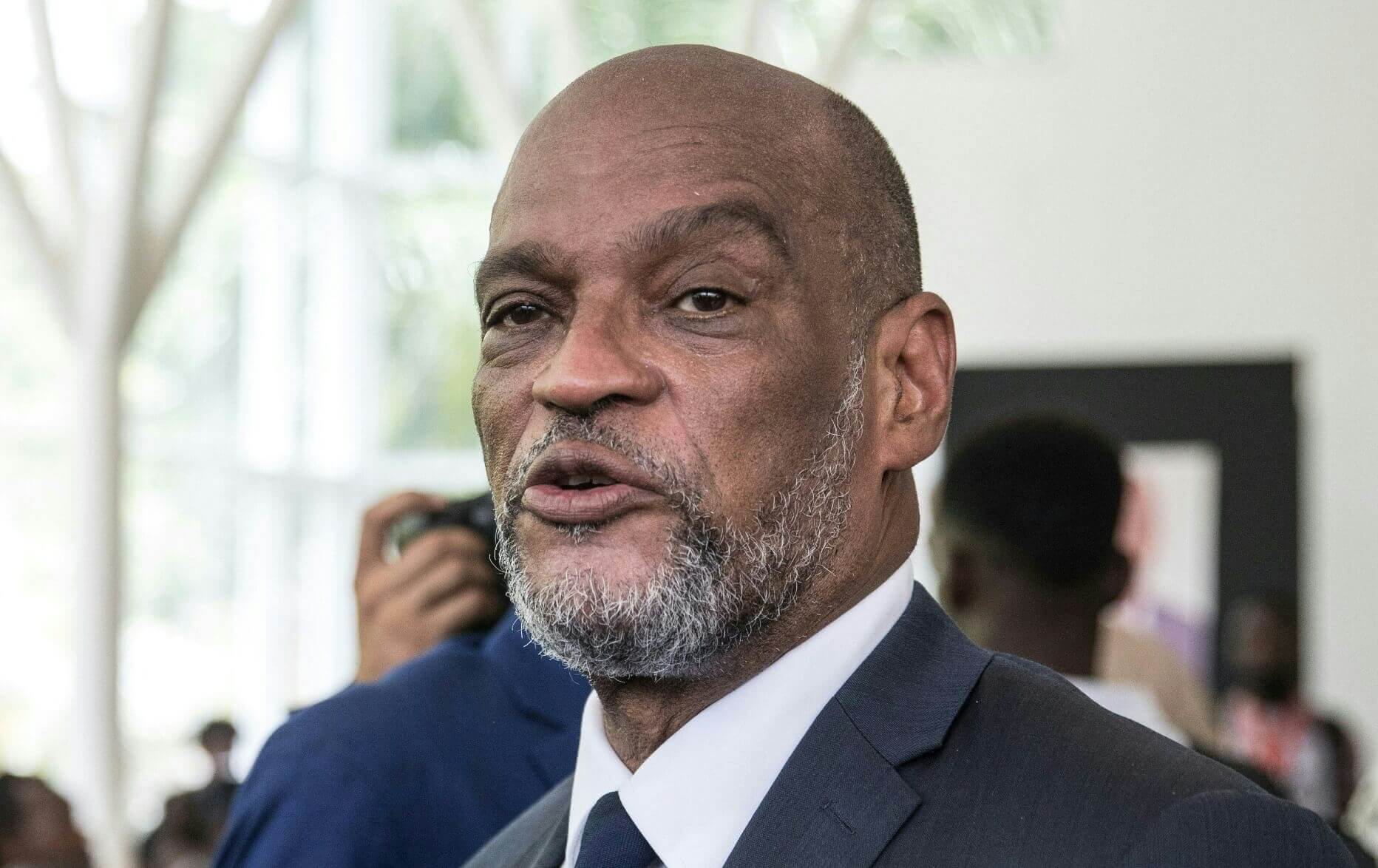Haiti’s chief prosecutor, Bedford Claude, has asked Prime Minister (PM) Ariel Henry to testify in an investigation into the assassination of former President Jovenel Moïse on 7 July. Henry is one of the main suspects in the incident, given that there are reports that he spoke at least twice with former civil servant Felix Badio, a former justice ministry official who has been accused of being one of the masterminds behind the assassination. The hearing at the Court of First Instance of Port-au-Prince will take place on Tuesday morning.
Given Henry’s high-ranking position in the government, Claude said only the president could not compel Henry to testify, and therefore the PM was merely being “invited” to do so. In fact, the letter sent to Henry said: “The head of the criminal prosecution would be grateful if you could present yourself … to cooperate with Haitian justice if you so wish, taking into account the restrictions given your status as a senior state official.”
Also Read: New Report Claims Haitian PM Henry Was Complicit in President Moïse’s Assassination
There is currently a warrant out for Badio’s arrest, who spoke with PM Henry on the phone at least twice, including at 4am on July 7, just hours after Moïse was killed. Geolocation data provided by telecommunications company Digicel has also revealed that Badio was present at the scene of the crime.
While Henry has conceded that he knows Badio, he refuted allegations of the former justice ministry official’s involvement in Moïse’s assassination, saying that he did not have the ‘means’ to carry out such an operation.
The PM also dismissed allegations of his involvement in Moïse’s assassination as “diversionary tactics to sow confusion and prevent justice.” He tweeted: “The real culprits, the masterminds and sponsors of the odious assassination of President Jovenel Moise, will be identified, brought to justice and punished for their crime.”
Haitian police have offered a $60,000 reward for any information leading to the arrest of Badio and two other main suspects in relation with the assassination. At present, 44 people have been taken into custody, including 18 Colombians and 12 members of the former president’s security team.
In another worrying development in the aftermath of the assassination, the first judge who was appointed to oversee the investigation, Mathieu Chanlatte, resigned from the role on August 13 due to “personal reasons.” However, there could have been more at play in his resignation, given that he stepped down just one day after one of his assistants died under “unclear circumstances.”
Moïse’s wife, Martine, who was injured during the attack but survived, has shared her suspicions regarding the investigation, saying, “I feel that the process is… stalling a little,” adding, “Those people (they have arrested) did it, but someone gave the orders, someone gave the money.” She also called on Henry to call for elections as soon as possible for “long term peace,” and announced that she intends to run in the election.
On Monday, it was announced that Haitian officials had reached an agreement to officially place the country under the control of PM Henry and remove the position of provisional president until elections are held at the end of next year.
In addition, last Wednesday, the government drafted a new constitution that would reportedly expand presidential powers and weaken the parliament. The wheels for this proposal were already set in motion under Moïse. If approved, the bill will eliminate the position of prime minister and instead open up a role for a vice president, which is aimed at reducing the gridlock involved in approving policy under the current system.
On July 7, Haitian President Jovenel Moïse, 53, was assassinated at his residence in Port-au-Prince. Subsequently, interim PM Claude Joseph agreed to step down to allow PM-designate Ariel Henry to take over.
Aside from this political upheaval, the country is simultaneously reeling from the impact of a 7.2 magnitude earthquake that struck the country on August 14 and killed over 2,000 and left hundreds missing.

